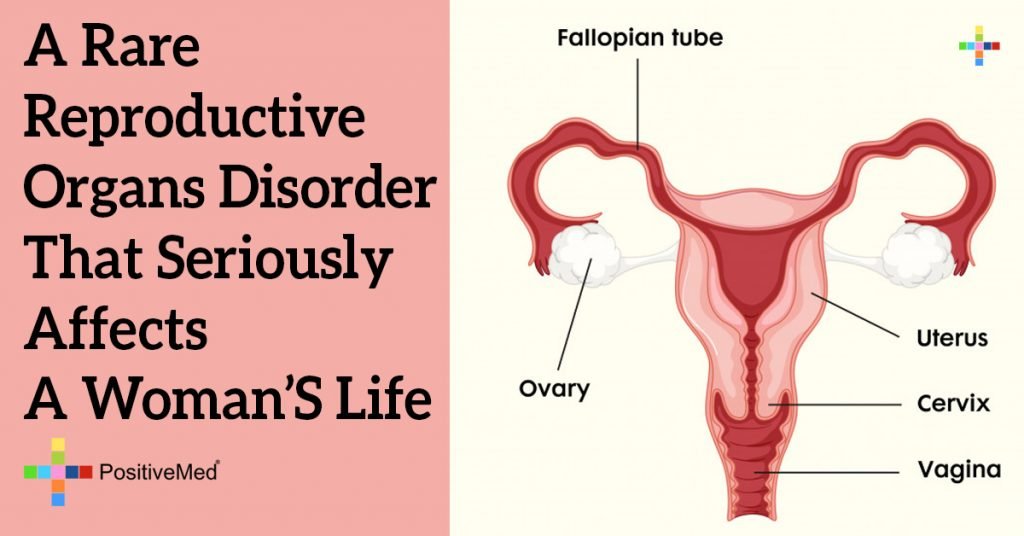
A Rare Reproductive Organs Disorder that Seriously Affects a Woman’s Life
As the human body develops in the womb, there are many things that can go wrong with a developing fetus. Some of these congenital disorders can be life threatening, but others, such as Mayer-Rokitansky-Kuster-Hauser (MRKH) Syndrome, are merely inconvenient or problematic. MRKH Syndrome is a disorder that affects the development of the female reproductive organs, and roughly 1 in 4,500 women have it. There are many different severity levels, so patients with MRKH can have many different types of malformations that affect fertility and reproduction.

Women born with MRKH syndrome have typical ovaries and hormones, so ovulation can occur. However, the vaginal canal and the uterus of women with this syndrome are either very small and underdeveloped or completely absent. Some women with MRKH may have a fully functional uterus but no vagina, or they may have a functional vagina without a uterus. n addition to these abnormalities of the reproductive system, women may also have underdeveloped kidneys, skeletal abnormalities, hearing loss, and heart defects.
Sometimes, MRKH is diagnosed at birth, because there is no sign of a vagina, but if the vaginal canal is present yet underdeveloped, it may not be noticed right away. Normally, MRKH is diagnosed around the age of 16, when a teenager visits the doctor because she is not having a period. In some cases, MRKH is diagnosed after complaints of frequent stomach pains. This happens when a patient is experiencing menstruation, but there is no vaginal canal for the menstrual blood to exit the body. This condition is very unhealthy, and it requires surgery to fix. In some rare cases, MRKH is not diagnosed until a very late stage because everything appears normal, but an MRI or an ultrasound can reveal that the uterus is abnormally small.
RELATED ARTICLE: Study Says: This Little Spice Can Combat Infertility From PCOS
Currently, the precise cause of MRKH is unknown. It happens when the Mullerian duct, an embryonic structure that forms the reproductive system, fails to develop properly. This malformation appears to be due to a combination of environmental and genetic factors. Both a mutation of the Wnt4 gene in chromosome 1 or a missing gene in chromosome 17 seem to be somehow linked to MRKH syndrome, but there is currently no definitive understanding of why some people with these genetic issues end up with MRKH. MRKH syndrome is not only genetic, sine there have been cases of identical twin girls where only one twin developed MRKH. It is possible that being exposed to illnesses or toxins while in utero may also have some effect on the prevalence of MRKH. People with a familial history of MRKH are slightly more likely to have the syndrome, but there is no other known risk factors for MRKH.
There are currently several medical treatments available for MRKH, depending on what individual symptoms a patient has, and most of these treatments focus on making intercourse and fertility possible. For patients with an incomplete vagina, using a series of vaginal dilators may increase the size enough for intercourse to develop. Surgery can also be used to create a vagina if it is missing altogether, so it is possible for women with MRKH to have a fulfilling and enjoyable love life. Surgery may also be required if a woman has an underdeveloped uterus without a vagina, and it is necessary to remove this underdeveloped uterus if it is menstruating without an outlet. However, if the uterus is normal, it is typically not removed because that would affect later fertility.
For women with MRKH who want to get pregnant, there are many options available. Since they have fully functioning ovaries, they can still have biological children. If a woman has a fully functioning uterus without a vagina, she can have a fertilised embryo implanted in the uterus, and then she can give birth through a Caesarian section. For women without a uterus, the only option used to be using a surrogate to carry a baby to term. However, an extremely recent medical research program from Sweden showed that it was possible for a woman with MRKH to undergo a uterine transplant and have a successful pregnancy. This just happened for the first time in 2014, but now that it has been proven to be possible, this revolutionary procedure may become available to more women with MRKH.
If you suspect that you have MRKH, you can contact your doctor or gynecologist for more tests. Though it can be shocking to learn that you have this developmental reproductive disorder, it does not have to prevent you from living a happy life. Fortunately, there are many treatments available for the syndrome, so it possible to have an enjoyable love life and eventually create a family.





